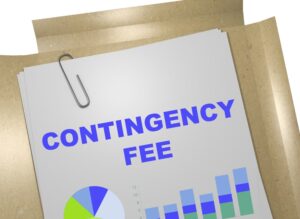How Much Does a Personal Injury Lawyer Cost?
How Much Does a Personal Injury Lawyer Cost?
When you’ve suffered an injury due to someone else’s carelessness, you might wonder how much hiring a personal injury lawyer will cost. It’s a valid question, and understanding the payment structure can help you make an informed decision about seeking legal help.
Personal injury attorneys usually work differently from other types of lawyers, so how they charge for their services might surprise you if you’ve never dealt with this kind of case before.
In short: A personal injury lawyer will cost you nothing.
Let’s break down what you should know about the costs involved, how Newport Beach personal injury lawyers structure them, and why to hire legal representation for your claim.
Schedule a Free Initial Consultation
The Basics of Contingency Fees

Personal injury lawyers typically don’t charge upfront. Rather, they offer a contingency fee arrangement. This means you don’t pay anything to hire them. Instead, the attorney’s payment is contingent on winning your case or securing a settlement.
If your case doesn’t result in compensation, you don’t owe them a fee for their work.
The typical contingency fee is a portion of a client’s compensation. The lawyer’s policies and the case’s complexity will largely determine the percentage your attorney will receive.
Costs Beyond Legal Fees
It’s important to understand that hiring a personal injury attorney might involve expenses beyond the contingency fee. Legal cases often require funds for things like filing fees, obtaining medical records, hiring investigators, or consulting with professionals who can help support your claim. Lawyers typically call these case expenses or out-of-pocket expenses.
Some lawyers cover these costs and then take them out of a client’s settlement or award. Others may ask you to pay for certain expenses as they arise. Clarify this with your attorney before signing a contract so you know what to expect.
How Contingency Fees Benefit Clients
The contingency fee arrangement provides several benefits.
- First, it makes legal representation accessible to those who cannot afford it otherwise. You don’t need to worry about paying out-of-pocket while dealing with the financial fallout of your injury.
- Second, this structure motivates the attorney to fight for the best possible outcome. Since their payment depends on your compensation, they have a vested interest in securing the maximum amount for your claim.
What Percentage Should You Expect?
The exact percentage an attorney charges often depends on the specifics of your case. If your case is straightforward and settles quickly, the lawyer’s fee might be on the lower end of the spectrum. On the other hand, if your case requires a trial, the percentage can increase.
While contingency fees are standard, ask questions about the percentage upfront. To avoid surprises later, you’ll want to sign a clearly written contract.
Are There Alternatives to Contingency Fees?
Although contingency fees are the norm for personal injury cases, some attorneys offer alternative payment structures. For instance, a lawyer might work on an hourly basis, charging you for every hour they spend on your case.
However, this is rare in personal injury law since most clients prefer not to risk paying for legal services without knowing whether they’ll recover compensation.
Another possibility is a flat-fee arrangement, in which you pay a set amount for specific legal services. Again, this is uncommon in personal injury cases because the outcome is often uncertain, and the amount of work required can vary widely.
What Happens if You Lose Your Case?
One of the most reassuring aspects of this arrangement is you won’t have to pay your attorney any fees if your case isn’t successful. However, you might still need to cover case-related expenses.
Some attorneys absorb these costs, while others may require you to reimburse them regardless of the outcome. Clarify this detail before signing a contract.
How to Evaluate Whether a Lawyer’s Fee Is Fair
Not all lawyers charge the same percentage, and their fees can vary depending on their reputation, experience, and the complexity of your case. While it’s tempting to choose an attorney with the lowest fee, that’s not always the best approach.
A lower percentage doesn’t necessarily mean better results. Consider factors like their track record, communication style, and ability to handle cases similar to yours.
Discuss whether the fee includes any additional services, such as assistance with negotiating medical liens or resolving issues with your insurance company. A personal injury lawyer who provides comprehensive support might justify a higher fee than one who only handles certain aspects of your claim.
Understanding Fee Agreements
When you hire a personal injury attorney, you’ll typically sign a written fee agreement outlining the arrangement’s terms. This document should specify the contingency percentage, how to handle case expenses, and what happens if the case does not succeed.
Take the time to review this agreement carefully and ask questions. A good attorney will take the time to explain the terms to you in plain language.
Why Personal Injury Cases Take Time
The time it takes to resolve a personal injury case can affect the attorney’s fee.
Cases that settle quickly usually require less work and might result in a lower fee percentage. However, cases that involve disputes over liability or significant damages often take longer to resolve and require more resources.
Attorneys handling these complex cases invest considerable time and effort, reflected in their contingency fee.
Why Transparency Matters
A transparent attorney will openly discuss their fees and payment structure with you. They’ll ensure you understand what to expect and won’t try to pressure you into signing an agreement without fully understanding the terms.
Transparency signifies trustworthiness and professionalism, which you should prioritize when choosing legal representation.
The Value of Legal Representation
While it’s true that hiring a personal injury attorney comes with costs, it’s also true that having a lawyer can significantly increase the compensation you receive. Insurance companies often offer reduced settlements to individuals who don’t have legal help.
An attorney’s ability to advocate for your rights, negotiate with insurers, and present a strong case can make a substantial difference in the outcome of your claim.
Can You Negotiate the Fee?
In some cases, you can negotiate the attorney’s fee. While not all lawyers are open to adjusting their rates, some might be willing to consider a lower percentage, especially if your case is straightforward or likely to settle quickly.
Feel free to bring up the subject during your initial consultation. The worst that can happen is the attorney declines, and you can decide whether to proceed or explore other options.
Why a Lawyer May Justify Higher Fees
An attorney charging a higher contingency fee often brings added value to the table. They might have the resources to handle complex cases, the skills to negotiate with tough insurance adjusters, or the ability to present a compelling argument in court.
While a higher fee might seem like a drawback initially, the added compensation they secure for you can more than make up for it.
Schedule a Free Initial Consultation
Comparing Costs Among Attorneys
If you’re considering multiple lawyers, comparing their fee structures can help you make an informed decision.
During consultations, ask each attorney about their contingency percentage, how they handle expenses, and what additional services they provide. Pay attention to how they communicate and whether they’re upfront about their fees.
Choosing an attorney isn’t just about finding the lowest cost; it’s about finding someone you trust to handle your case effectively.
Free Consultations – A Critical Part of Choosing an Attorney
Free consultations are common among personal injury attorneys, offering potential clients a risk-free way to explore their legal options.
This initial meeting helps you select the right attorney for your case. It allows you to gain insights into the attorney’s experience and helps you determine whether their approach aligns with your needs.
Understanding Your Case and Legal Options
During a free consultation, you can discuss the specifics of your case with the attorney. This is your chance to provide details about your situation, including the nature of the injury, how it occurred, and the impact it has had on your life.
The attorney can then provide an initial assessment of your case, outlining possible legal strategies and what you might expect regarding compensation.
Evaluating the Attorney’s Approach
The consultation also gives you a sense of how the attorney handles cases like yours. Do they seem knowledgeable and confident? Are they attentive to your concerns?
Understanding their approach to communication, case strategy, and negotiation can help you gauge whether they fit your needs.
Clarifying Fees and Payment Structures
One of the most important aspects of a free consultation is the opportunity to ask about fees. If your attorney offers a contingency fee arrangement, review it to confirm the percentage they’ll take, any additional costs you need to pay, and how these align with your expectations. Use this time to eliminate surprises down the road.
Making an Informed Decision
A free consultation is more than just an introduction – it’s your chance to gather all the information needed to make an informed decision. By asking the right questions and carefully evaluating the attorney, you can feel confident that you’re choosing someone who will effectively represent your interests.
Why Costs Vary Between Cases
Again, the amount of money your attorney receives will largely depend on the difficulty of the case. For example, a straightforward car accident case might involve less work than a product liability case. Factors like the amount of evidence, the number of parties involved, and the potential compensation can all influence the attorney’s fee.
Never Try to Handle Your Case Alone
Handling a personal injury claim without a lawyer can seem like a way to save money, but it often leads to unintended consequences.
Insurance companies employ teams of adjusters and legal experts who are trained to minimize payouts. These professionals know how to navigate the system in their favor, and without comparable legal knowledge, you may find yourself at a significant disadvantage.
The Complexity of Personal Injury Claims
Personal injury claims often involve more than just filing paperwork. You need to understand liability laws, damages calculations, and procedural rules that can affect the outcome of your case.
Missing a deadline or misunderstanding the value of your claim can lead to receiving far less compensation than you deserve – or nothing at all.
A Lawyer Levels the Playing Field
An experienced personal injury lawyer knows the tricks insurance companies use to deny accident victims the money they deserve. They can counter these strategies, gather the necessary evidence, and build a strong case on your behalf.
By negotiating with insurers, skilled attorneys can often secure much higher settlements than you might achieve alone.
Peace of Mind During a Stressful Time
Dealing with a personal injury claim can be overwhelming, especially if you’re recovering from an injury. An attorney takes care of all the legal hassles so you can concentrate on recovering. Their knowledge ensures that no aspect of your claim is overlooked, giving you peace of mind during a stressful period.
Learn More By Contacting a Personal Injury Lawyer

Hiring a personal injury attorney might seem daunting, especially if you’re worried about the cost. However, understanding how contingency fees work and what to expect can make the process less intimidating.
The right attorney can make a significant difference in your case by securing compensation and easing the burden of dealing with legal and insurance matters.
Research your options, ask questions, and choose a lawyer who makes you feel confident in their ability to handle your case. By doing so, you’ll increase your chances of a successful outcome and protect your rights every step of the way.


